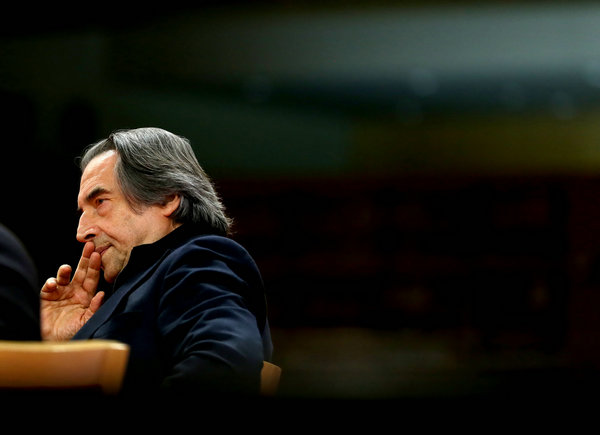 |
|
Riccardo Muti[Photo by Jiang Dong/ China Daily] |
Like most Western classical musicians, Muti believes that Asia is the future of classical music.
'Italy is the cradle of classical music. But music is universal. The first time I worked with the Shanghai Symphony Orchestra in 2011, I found wonderful musicians, very well prepared and many of them who had studied in Europe or America," he says.
In his eyes, Asian audiences are becoming the best audiences in the world.
"There are two kinds of audiences-one with intelligence, discipline and culture and the other without discipline and culture. In general, the Asian public has respect for performers and increasingly understand the content of the performance. This is important-to be able to understand what the artists are doing."
Muti also shares his experience of working with people from different countries to show the magical power of music in communication.
He started a project called "concerts for friendship" in 1996 right after the war in Sarajevo. He took Scala's orchestra and chorus to Sarajevo and invited local musicians to join the performance.
"Musicians from Sarajevo and from Scala sat one by one. They did not know each other's names, they spoke different languages, followed different religions, but they felt through music in the same way and they became friends," he says.
Three years ago, the project went to Nairobi, the capital of Kenya. About 200 local children joined their chorus to sing the opera Nabuco.
"They learned very carefully. And when they sang, there was no difference. We are the same people-together, trying to find the same musical spirit."
"When music touches the soul, the hearts of people, we are all the same. The heart has one color. When music touches hearts ... it make us feel like brothers."
"Through music, we are one big family. There are no Chinese, Japanese, Italians, Germans. Through music we communicate much better than diplomats."
Contact the writer at [email protected]
|
|
|
|
|
|
|
|
